Those who have experienced having a heartless, cruel manager would know how demoralizing and traumatizing it can be. You work tirelessly at a stressful job, only to be exacerbated by the unsympathetic individual who pretty much controls whether or not you move up the corporate ladder.
However, some people can take that cruelty up a notch, much like what this employee went through. Not only did his boss deny his paid time off to grieve the passing of a close loved one, but he was also unceremoniously and unjustly terminated for attending the funeral.
The man did get even through petty revenge, doling out some hilarious yet much-deserved comeuppance on his former employer.
No one deserves to be unjustly terminated from their job

Image credits: Safa Bakırcı / Pexels (not the actual photo)
It unfortunately happened to this employee, who was mourning the loss of his grandfather
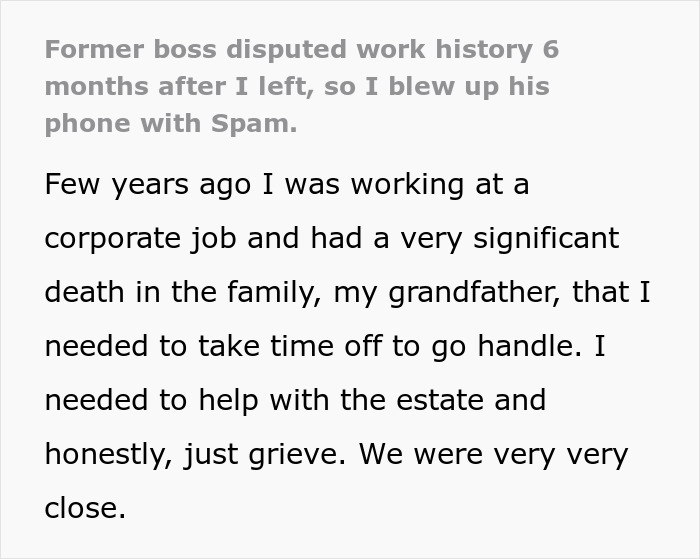



Image credits: Kampus Production / Pexels (not the actual photo)
After being denied paid time off to grieve, he was also fired for attending the funeral and made to sign a gag order
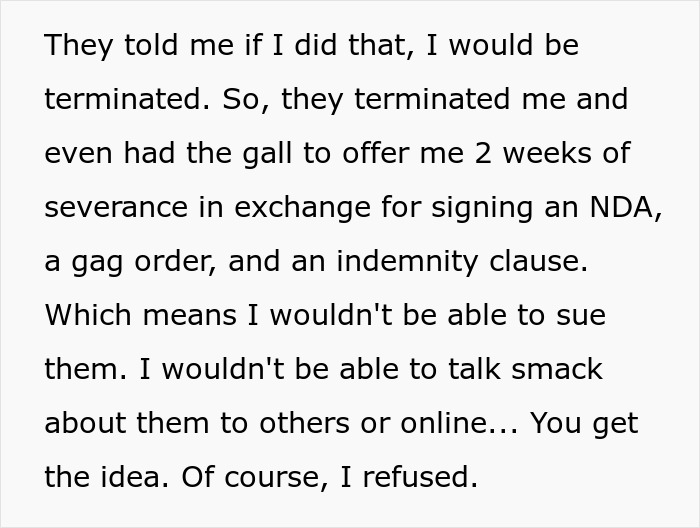

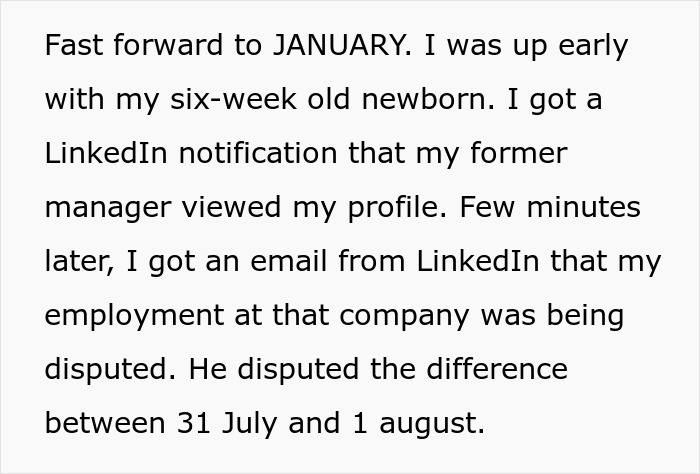
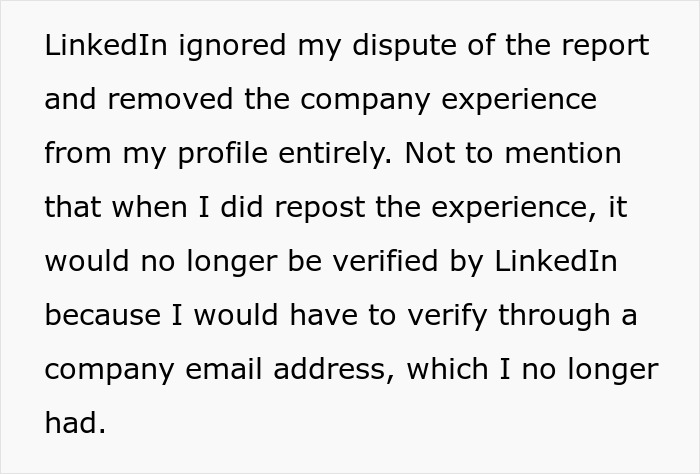

Image credits: Getty Images / Unsplash (not the actual photo)
Fed up with the insult to injury, the man hatched the perfect petty revenge


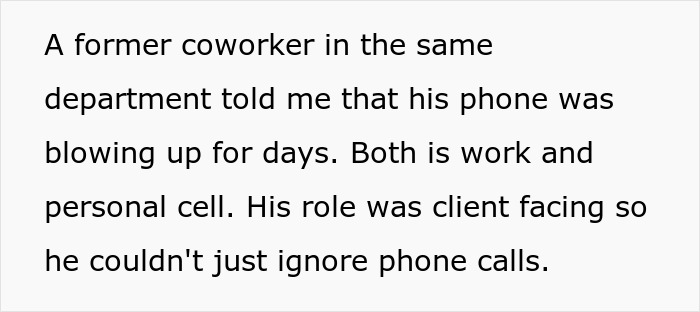

Image credits: Seannj222

Image credits: MART PRODUCTION / Pexels (not the actual photo)
Paid time off isn’t required by federal law, which enables companies to set their own policies
We had the opportunity to have a brief conversation with Anush Gasparian, Human Resources Director at California-based software company Phonexa. She clarified that because paid time off isn’t a federal requirement, companies can set their own policies. That may complicate many situations, like what the story’s author experienced.
“Request denial itself isn’t unethical at all. What makes it unethical is the wrong motivation,” Gasparian tells Bored Panda. “For example, when the manager tries to punish or control their team this way, it’s unethical and petty. And this behavior usually backfires badly.”
Gasparian also confirmed that a grandparent’s death does not qualify for FMLA, unless they acted in loco parentis or provided daily care and financial support during the employee’s childhood.
But can managers threaten or push through with termination if the employee goes against their orders, even out of necessity? Gasparian says legally, yes. However, such actions come with consequences.
“This can lower the employee’s morale, lead to quiet quitting, or rage applying (when the employee sends out applications out of revenge/frustration).”
In the story, the author was in a tough spot, given the “power” his former boss had over him. In such cases, Gasparian recommends documenting everything and remaining professional. Seeking legal advice is also an option if necessary.
But her most important tip is to focus on protecting your reputation and moving to a healthier work environment.
“Sometimes, the best revenge is finding inner peace in a better position in a company with healthy relationships,” Gasparian said.
The author’s petty revenge wasn’t necessary. However, his manager’s grudging actions extended after he left, and his harmless, petty revenge was understandable.
People in the comments applauded his scheme, and some had some wisecracks to share
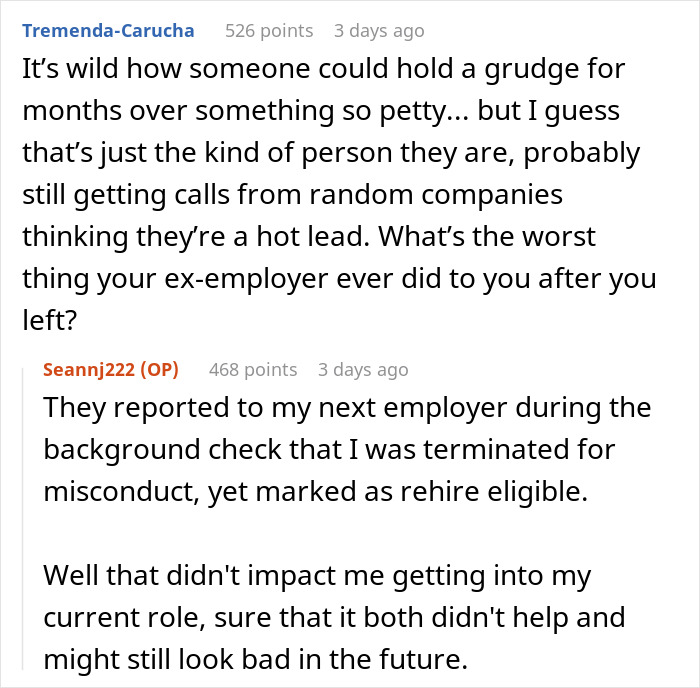


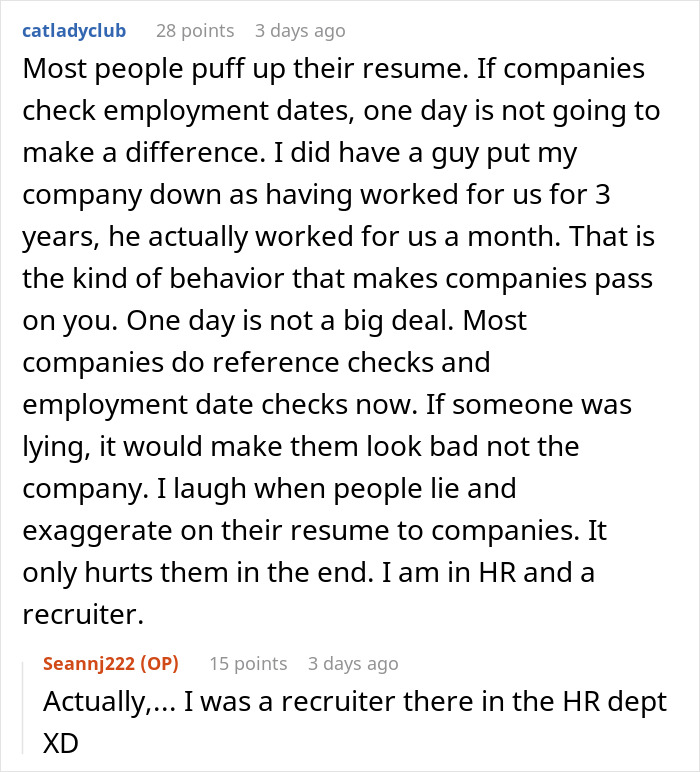
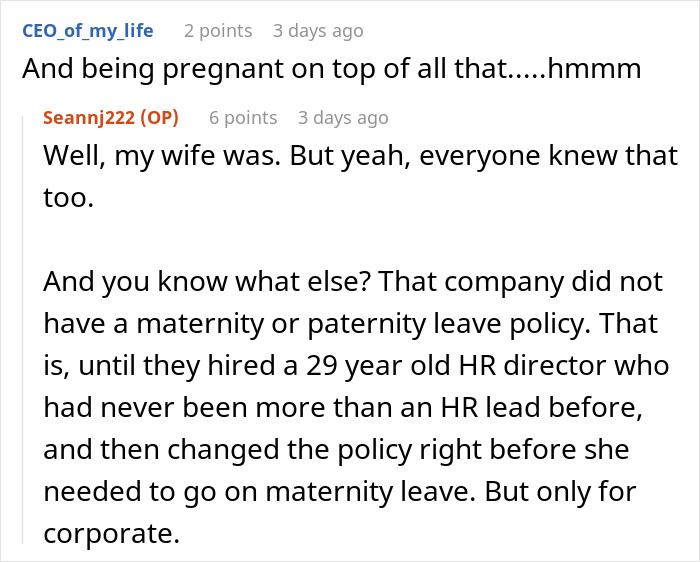


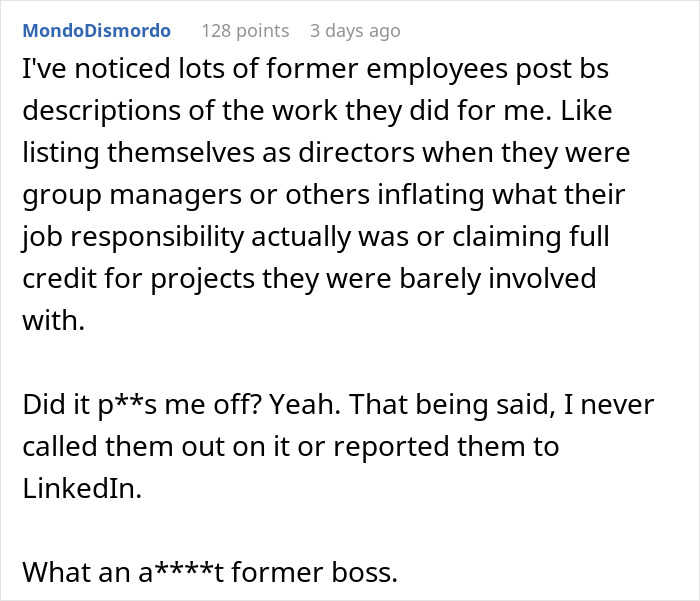















 Follow Us
Follow Us





